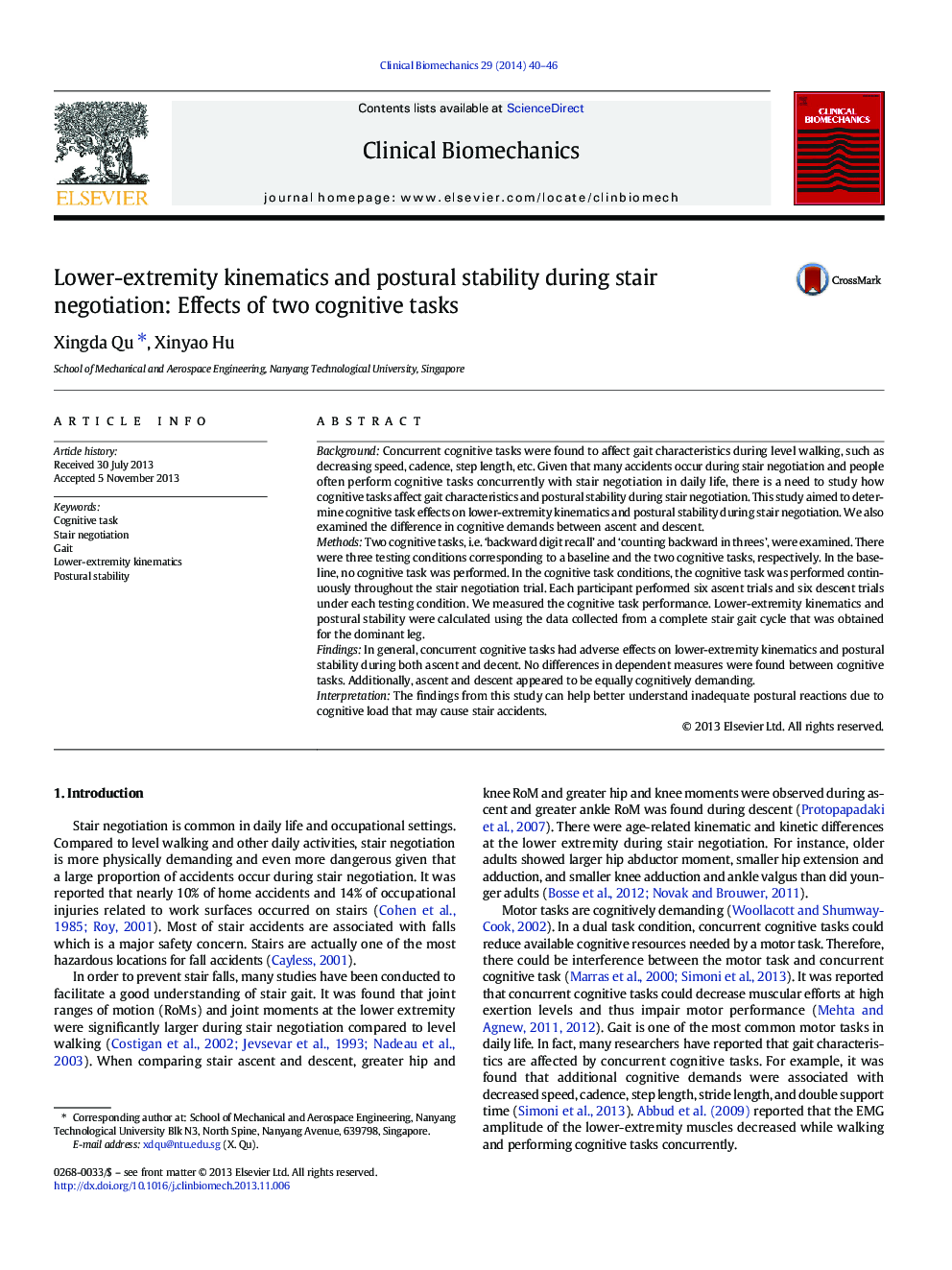| Article ID | Journal | Published Year | Pages | File Type |
|---|---|---|---|---|
| 4050411 | Clinical Biomechanics | 2014 | 7 Pages |
BackgroundConcurrent cognitive tasks were found to affect gait characteristics during level walking, such as decreasing speed, cadence, step length, etc. Given that many accidents occur during stair negotiation and people often perform cognitive tasks concurrently with stair negotiation in daily life, there is a need to study how cognitive tasks affect gait characteristics and postural stability during stair negotiation. This study aimed to determine cognitive task effects on lower-extremity kinematics and postural stability during stair negotiation. We also examined the difference in cognitive demands between ascent and descent.MethodsTwo cognitive tasks, i.e. ‘backward digit recall’ and ‘counting backward in threes’, were examined. There were three testing conditions corresponding to a baseline and the two cognitive tasks, respectively. In the baseline, no cognitive task was performed. In the cognitive task conditions, the cognitive task was performed continuously throughout the stair negotiation trial. Each participant performed six ascent trials and six descent trials under each testing condition. We measured the cognitive task performance. Lower-extremity kinematics and postural stability were calculated using the data collected from a complete stair gait cycle that was obtained for the dominant leg.FindingsIn general, concurrent cognitive tasks had adverse effects on lower-extremity kinematics and postural stability during both ascent and decent. No differences in dependent measures were found between cognitive tasks. Additionally, ascent and descent appeared to be equally cognitively demanding.InterpretationThe findings from this study can help better understand inadequate postural reactions due to cognitive load that may cause stair accidents.
